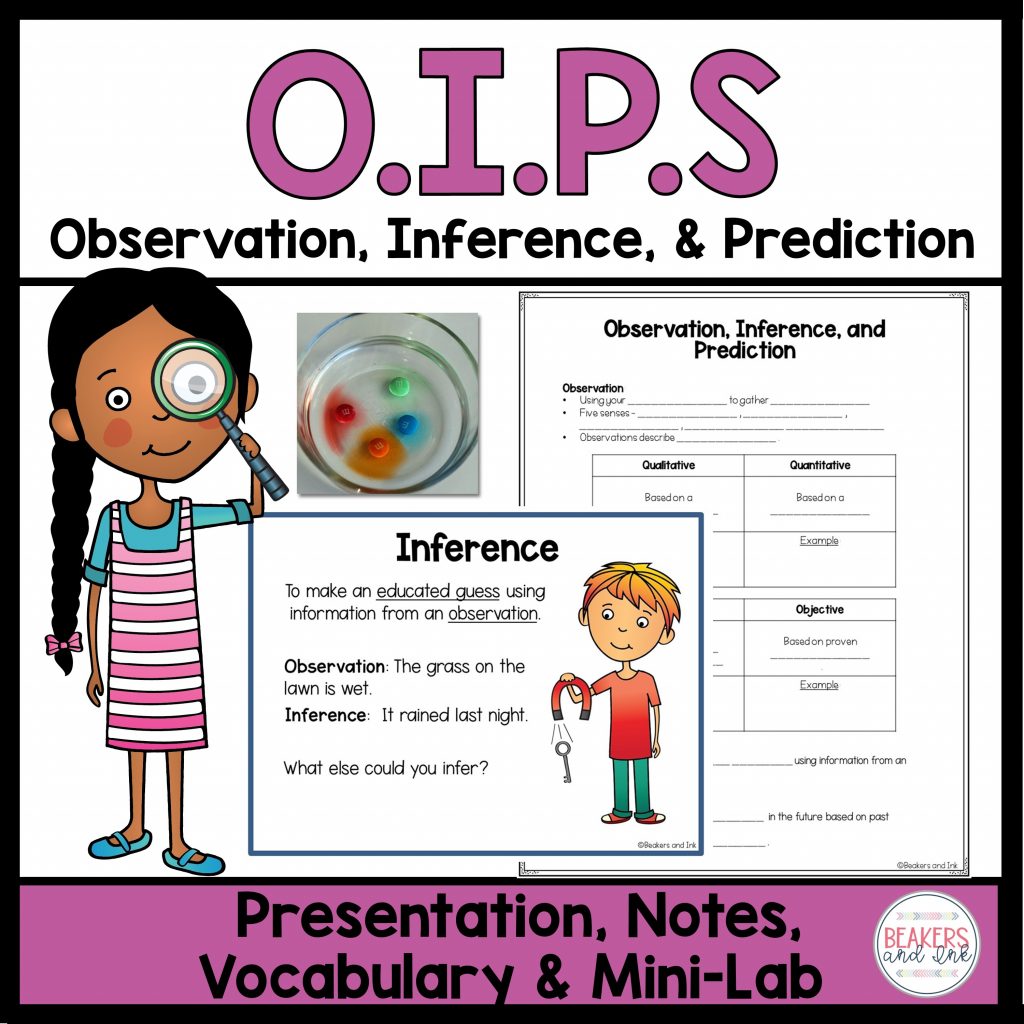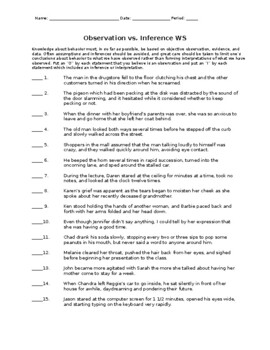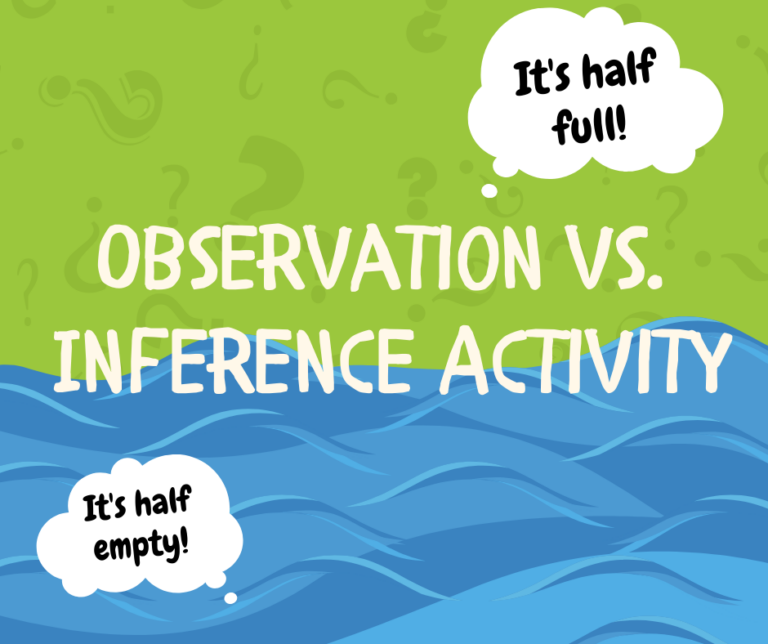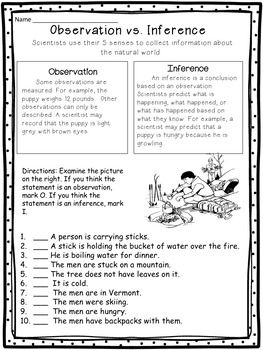Observation vs Inference Worksheet: Boost Your Scientific Thinking

The ability to distinguish between observation and inference is fundamental to scientific thinking. Whether you're a student learning about the scientific method or a professional conducting research, understanding these concepts can sharpen your analytical skills. In this blog post, we'll explore what observation and inference entail, provide examples, and guide you through exercises that can help you differentiate between the two.
Understanding Observation and Inference

Observation involves collecting information through our senses or scientific instruments. It is what we see, hear, touch, taste, or smell, and it must be recorded accurately without any bias or interpretation. On the other hand, inference involves making conclusions or predictions based on those observations. Here's a breakdown:
- Observation: Objective, sensory input or data.
- Inference: Subjective, interpretative conclusions drawn from observations.
Why It Matters?

Mastering the distinction between observation and inference is crucial because:
- Accuracy in Data Recording: Observations provide the raw data upon which scientific inquiry is built. Misinterpreting observations as inferences can lead to flawed data.
- Critical Thinking: Knowing when you're observing versus inferring helps develop critical thinking skills, allowing for more logical conclusions and predictions.
- Effective Communication: In scientific discussions, clarity about what is observed and what is inferred prevents miscommunications and enhances the quality of collaborative research.
Worksheet Examples

To better understand the difference, let's go through some worksheet examples:
Scenario 1: Fish in a Tank

- Observation: The fish in the tank are swimming rapidly near the surface.
- Possible Inferences:
- The fish might be hungry.
- The water could be too warm or low in oxygen.
Scenario 2: Leaves on Trees

- Observation: Most of the leaves on the trees are changing color and falling.
- Possible Inferences:
- Autumn has arrived, signaling a change in seasons.
- The trees might be stressed due to environmental factors.
Scenario 3: Wet Ground

- Observation: The ground is wet, and there are dark clouds in the sky.
- Possible Inferences:
- It has rained recently.
- It might rain soon, given the cloud coverage.
🔬 Note: Remember, an inference can be right or wrong, but an observation should be factual and verifiable. Testing your inferences through further observations or experiments can confirm or refute them.
Activities to Strengthen Your Skills

Here are some practical exercises to help distinguish between observation and inference:
Observation Walk

Take a walk in your environment, be it nature, your office, or home. Make a list of what you:
- See (without interpreting why things are the way they are).
- Smell, hear, feel, or taste (if appropriate).
🔍 Note: Focus on capturing sensory details rather than jumping to conclusions. This exercise sharpens your observational skills.
Object Study

Choose an everyday object. List down as many observations as possible without drawing inferences:
- Color, texture, smell, shape, weight, and any other physical properties.
- Then, write down inferences you might make from these observations.
👀 Note: This activity teaches you to observe first, then infer, reinforcing the separation between these two processes.
Video Pause and Play

Watch a video (like a short film or documentary) and pause it at random intervals. Write down:
- What you see and hear at that moment (observations).
- What you think might happen next or what's happening in the scene (inferences).
📽️ Note: This method shows how context influences our inferences and how observations remain constant.
Integrating Observations and Inferences in Your Daily Life

Incorporating these skills into daily life can improve your:
- Problem-Solving Skills: You'll approach problems more systematically, reducing the chances of making premature conclusions.
- Creativity: Observing without immediately inferring allows for more creative thinking as you explore various possibilities.
- Scientific Literacy: Understanding how to interpret scientific reports, media, and public health information with a clearer lens.
By consciously practicing these skills, you'll find yourself thinking more like a scientist, engaging with the world in a more informed and nuanced way. The journey from pure observation to considered inference can lead to profound insights, not just in scientific inquiry but in everyday decision-making as well.
What’s the difference between an observation and a hypothesis?

+
An observation is something you directly perceive with your senses or through instruments. A hypothesis is a testable statement or prediction that explains an observation or a set of observations. It’s an inference or educated guess that seeks to be confirmed or refuted through scientific testing.
Can inferences be wrong?

+
Yes, inferences can be wrong because they are interpretations of observations, which might not always capture all variables or might misinterpret the data. Scientific method involves testing these inferences to validate or disprove them.
How can improving my observational skills benefit me outside of science?

+
Improved observational skills lead to:
- Enhanced attention to detail in daily tasks.
- Better interpersonal relationships through more accurate interpretation of non-verbal cues.
- More effective learning by being able to understand and remember complex concepts.